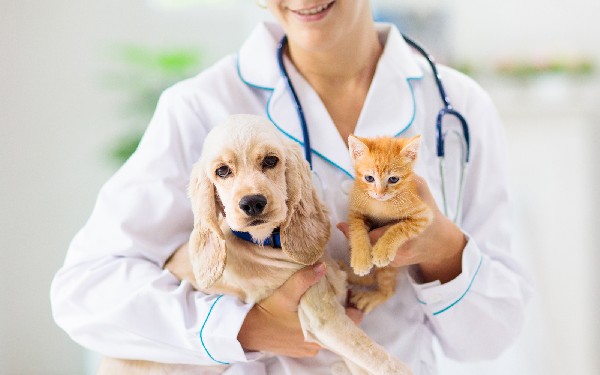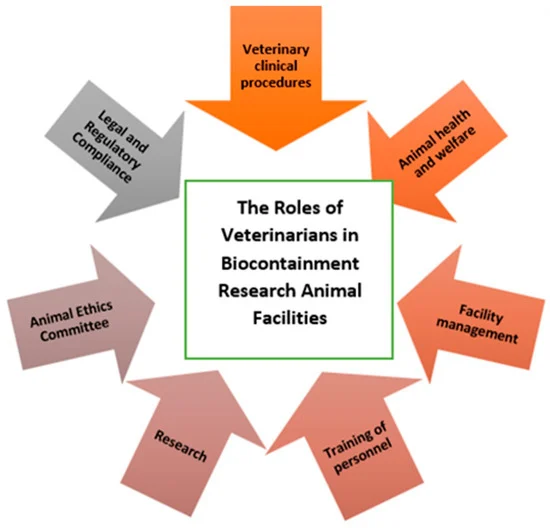Veterinarians are integral to the global animal industry, playing a multifaceted role that spans from ensuring animal health to supporting animal welfare. As the guardians of both domestic pets and livestock, veterinarians contribute extensively to improving the animal care system, enhancing the quality of life for animals, and, by extension, fostering the economic and social well-being of societies around the world. The question of how is the career veterinarian important to the animal industry is one that involves much more than simply curing illnesses or providing basic care; it is a deeply embedded profession that drives advancements in animal sciences, public health, and food security.

In this article, we will examine the core functions of veterinarians within the animal industry and explore how their contributions enhance the efficiency, sustainability, and ethical practices in managing animal populations.
At the heart of the veterinary profession lies the fundamental task of maintaining animal health. Veterinarians are not just doctors for animals—they are experts in diagnosing and treating a wide array of animal diseases, ranging from common viral and bacterial infections to rare and complex conditions that may pose significant risks to both animal and human populations.
In livestock farming, veterinarians play a pivotal role in ensuring that animals are free from disease, which directly impacts food safety, production, and public health. They work in tandem with farm managers to monitor the health of herds, offer preventive care, and implement animal disease control measures. By diagnosing diseases early and providing the necessary treatments, veterinarians reduce the risk of outbreaks that could devastate entire animal populations, causing financial losses and jeopardizing the food supply.
Veterinary research has been a cornerstone of breakthroughs in animal disease prevention and animal treatments. Thanks to continuous studies and innovations, veterinarians can now apply advanced diagnostic tools and therapies that enable more accurate detection and faster treatment options. Their involvement in the discovery of vaccines, such as those used to prevent foot-and-mouth disease in cattle or rabies in dogs, has saved countless lives and continues to safeguard the world’s animal populations.
Veterinarians are also critical in promoting animal welfare across various sectors. Whether in zoos, farms, or pet ownership, ensuring that animals live healthy, fulfilling lives is a key responsibility of the veterinary profession. Their involvement goes beyond disease management and includes providing expert advice on nutrition, behavior, and overall well-being.
In animal breeding, veterinarians ensure that breeding practices align with ethical standards, focusing on the genetic health of the animal population and preventing the spread of hereditary diseases. By using their knowledge of genetics and reproductive health, veterinarians work with breeders to ensure the health of the offspring and the long-term sustainability of certain breeds, particularly those in agricultural and conservation efforts.
Moreover, veterinarians help maintain high standards of animal protection by advocating for better practices in livestock care and supporting the enforcement of humane regulations. Whether through their guidance in pet care or overseeing the ethics of farm operations, veterinarians are vocal advocates for the humane treatment of animals in all settings.

The Critical Role of Veterinarians
In addition to their routine tasks, veterinarians are crucial in emergency veterinary care. Their ability to provide immediate medical attention during accidents or natural disasters can mean the difference between life and death for animals. Through surgical procedures, trauma care, and intensive medical attention, veterinarians address the most urgent health needs.
Preventive medicine is another vital area where veterinarians make significant contributions to animal health. The concept of preventive medicine encompasses vaccinations, parasite control, health screenings, and dietary recommendations that prevent common diseases from affecting animal populations. By ensuring that animals are kept in optimal health, veterinarians reduce the likelihood of outbreaks, thus promoting long-term disease management strategies that benefit both the animals and the industries relying on them.
In agricultural systems, veterinarians are indispensable to livestock management. They ensure that livestock are not only healthy but also productive. By overseeing proper feeding practices, disease prevention strategies, and reproductive health, veterinarians contribute to the efficiency of animal farming. They work closely with farm operators to implement sustainable practices that improve animal welfare and reduce the environmental footprint of farming.
The role of veterinarians extends to ensuring the safety of animal products—meat, dairy, and eggs. They supervise the health of animals that will be part of the food supply chain, making sure that they meet rigorous standards for public consumption. By monitoring food safety at every stage, from farm to table, veterinarians help prevent the transmission of harmful diseases to humans, particularly in the case of zoonotic diseases—those that can be transmitted from animals to humans. The timely management of such diseases in animals is key to ensuring food security and public health worldwide.
Veterinarians are not just animal health experts; they also contribute significantly to public health through their involvement in veterinary public health initiatives. They monitor animal populations for signs of disease outbreaks and work alongside government and health organizations to prevent these diseases from reaching humans.
In many countries, veterinarians are integral members of public health teams, helping to control and prevent zoonotic diseases such as avian influenza, rabies, and tuberculosis. Their expertise in controlling these diseases is crucial in protecting both animals and humans from potential health crises.
The veterinary profession demands a high level of education, expertise, and ongoing professional development. To become a qualified veterinarian, individuals must undergo rigorous training that combines theoretical knowledge with hands-on clinical practice. This ensures that veterinarians are well-equipped to handle the complexities of animal care and animal treatments in a wide range of environments—from rural farms to urban veterinary clinics.
Moreover, veterinary education does not stop after graduation. Veterinarians continually expand their knowledge through continued professional development, attending seminars, and participating in research to stay at the forefront of veterinary science. This commitment to lifelong learning ensures that veterinarians remain highly skilled and up-to-date with the latest techniques and treatments available for both common and rare animal diseases.
| Core Contribution | Details | Key Terms |
|---|---|---|
| Animal Health | Diagnosing, treating, and preventing animal diseases to maintain health. | Animal health, animal disease control |
| Animal Welfare | Promoting humane treatment and ethical care in animals. | Animal welfare, animal protection |
| Emergency Care & Preventive Medicine | Offering immediate care and preventive measures to prevent illness. | Emergency care, preventive medicine |
| Livestock Management | Managing the health and productivity of farm animals. | Livestock management, animal breeding |
| Veterinary Public Health | Ensuring diseases do not spread from animals to humans. | Zoonotic diseases, veterinary public health |
| Veterinary Education | Providing rigorous training to future veterinarians. | Veterinary education, veterinary profession |
By understanding the profound impact of veterinarians on the animal industry, it’s clear that their role is not only vital but irreplaceable in creating a sustainable and healthy future for both animals and humans.
From animal health to livestock management, veterinarians serve as the backbone of the animal industry. Their expertise spans disease prevention, ethical treatment, emergency care, public health, and beyond. Without veterinarians, the global animal industry would not only suffer from poor animal health outcomes but would also face significant risks in terms of food security, public health, and ethical practices.
As technology and research continue to evolve, the role of veterinarians will undoubtedly expand. Their work will remain critical in shaping a future where animals are cared for with the utmost respect and precision, contributing to a healthier, more sustainable world.
animal tags: Veterinarians
We created this article in conjunction with AI technology, then made sure it was fact-checked and edited by a Animals Top editor.